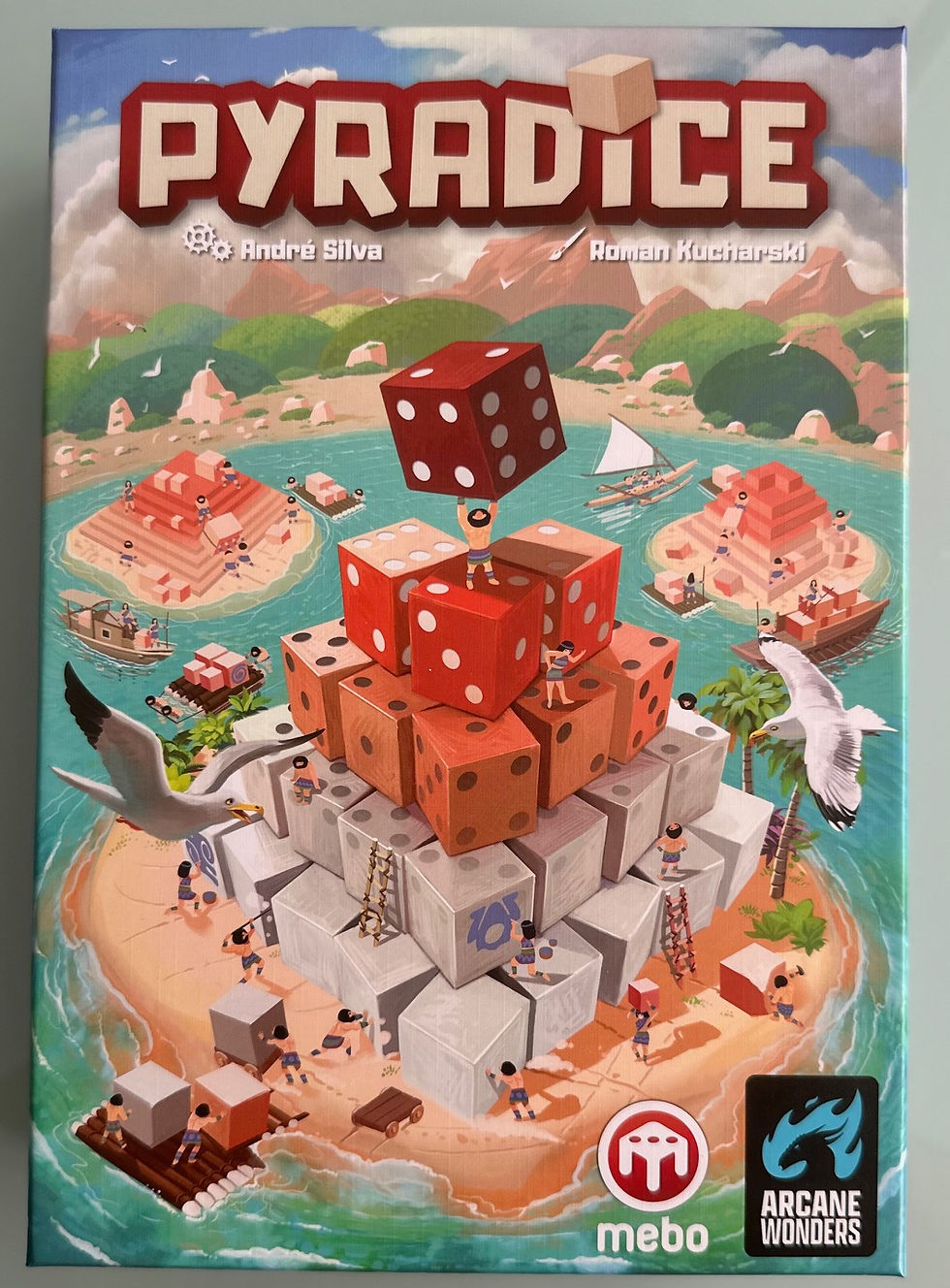Templari
- Board's Eye View

- May 23, 2022
- 3 min read
Notionally themed around the Knights Templar, Michael Schacht's Templari is really an abstract set collection bidding game for 3-5 players. It's published by Igiari with art by Noboru Sugiura.

The game is played with a deck of 30 cards. There are six colours of cards and the deck comprises three each of cards numbered 0-9. Players all start off with 12 coins. In each of 15 rounds, players are bidding to win the pair of cards that are flipped over from the shuffled deck. You want to collect as many cards as you can in a colour because the end-game scoring is triangular: you get 1 point for 1 card in a colour; 3 for 2 cards; 6 for 3; 10 for 4; and 15 points if you have all five of the cards in a particular colour.
The coins form a closed system: the winning bid is divvied up equally among all the other players (any remainder is carried forward to add to the kitty of the next auction). The first twist tho' is that cards you win restrict the numbers you can subsequently bid because you cannot place a bid that ends with that number. So, for example, if you win cards with 0 and 1, you cannot place a bid of 1, 10 or 11. As you can see, the more successful you are in winning bids, the harder it is for you to bid in subsequent rounds.
That's not the only twist tho'. It's not merely the catch-up mechanism that it seems on first sight. That's because when a winning bid ends with a number held by one or more players, it's those players that collect or divide between them the proceeds of that sale...
These simple rules create a highly interactive bidding game where players can cannily bid knowing what counter-bids are barred to other players but also, perhaps, avoiding placing bids that line the pockets of particular players. There's an end-game bonus for ending up with the most money but it's just two points, so you're always better off collecting sets...
Even tho' it's played over 15 rounds, Templari plays quickly. Our Board's Eye View plays all took 20-30 minutes. We preferred the game with five players, and, to be honest, it's only the fact that it comes with 60 rather than 72 coins that stops you adding a sixth player. The game is actually a slightly modified reimplementation of the 2001 mafia-themed Don (Queen Games) and the African-themed Serengeti (AbacusSpiele), both of which took six players, so if you substitute some other coins that'd be an option too for Templari.
And if you're looking for more, the rules suggest a variant where at the start of a round players go round the table deciding whether or not they will exchange a card with another player. This is a forced non-consensual swap. The bidding only starts when all players have either swapped or pass on the option of swapping. The penalty for swapping is that anyone who forces an exchange is excluded from bidding in that round... The swapping rule adds more 'take that' interaction and does extend playing time but if you get this game it's an option that's worth exploring. It becomes even more tactical if you go round the table inviting exchanges only after you've revealed the cards to be bid on that round...




